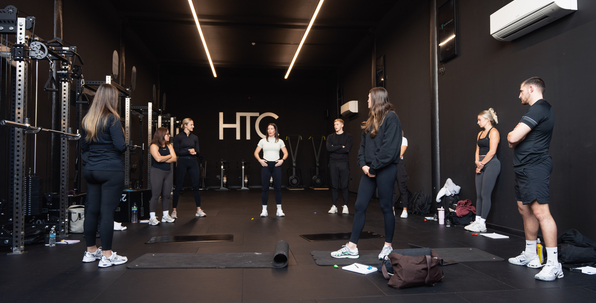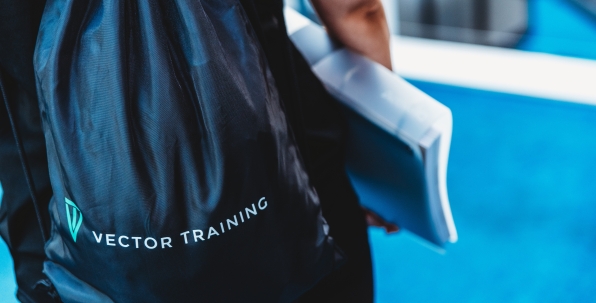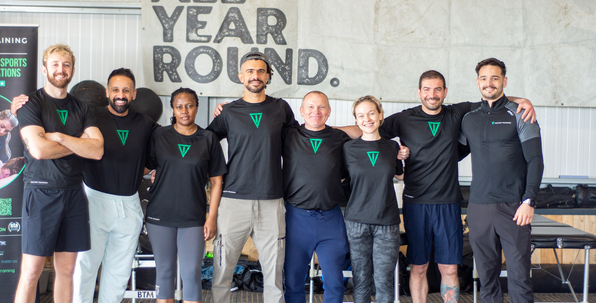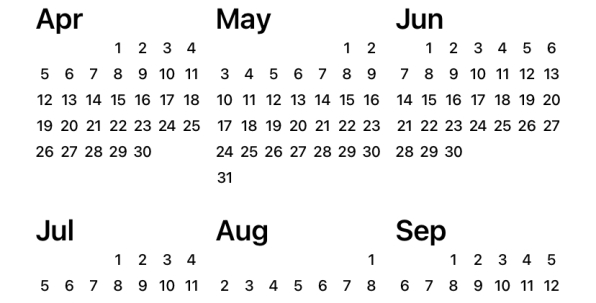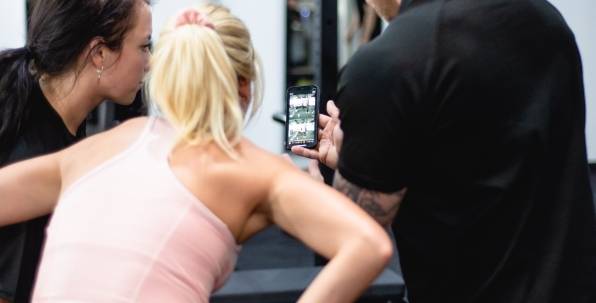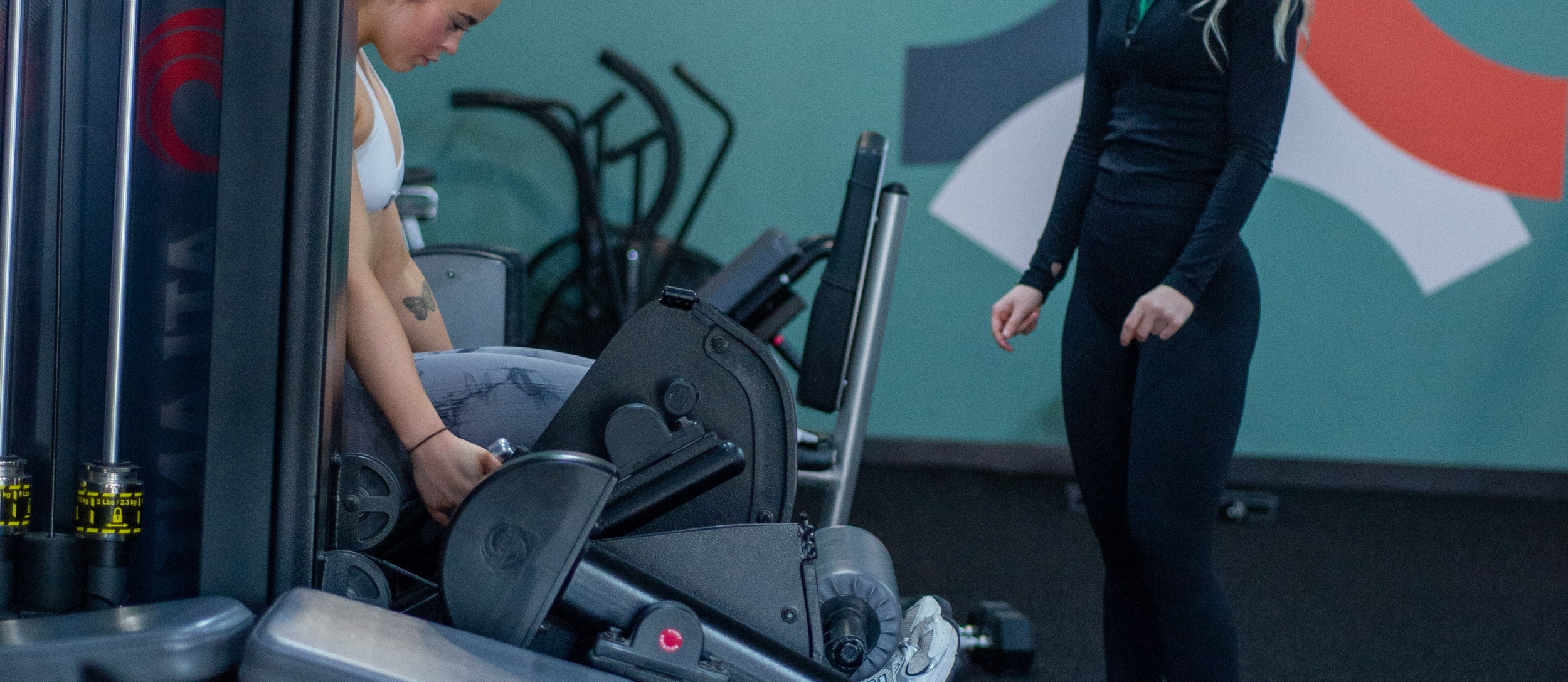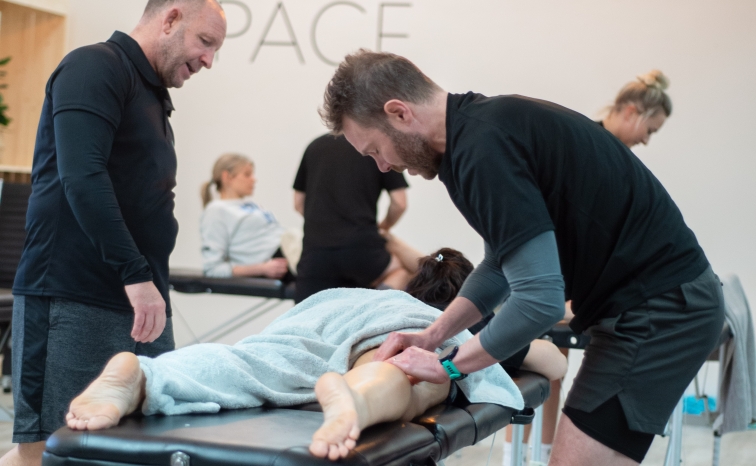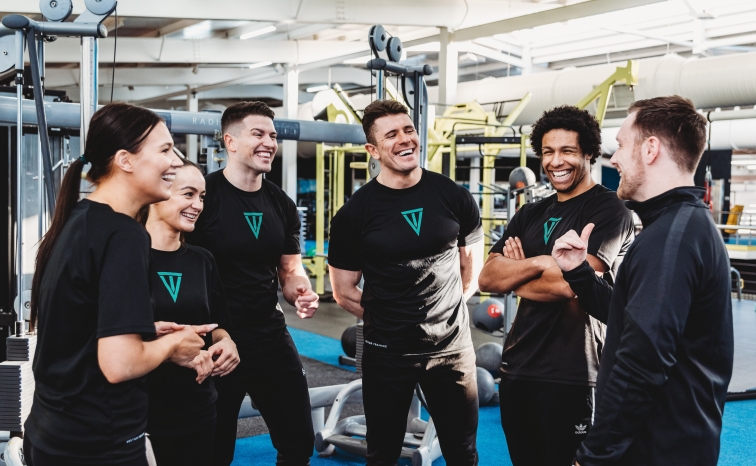What do you learn on a Gym Instructor course?
The Level 2 Certificate in Gym Instructing course qualifies individuals as certified Gym Instructors and enables them to gain employment in different health and fitness settings. Gym Instructors are often considered by many as the ‘face’ of the organisation and their role involves membership sales, gym inductions to members and providing a professional service.
Gym Instructors provide valuable technical input, therefore knowledge and understanding of how the body reacts to exercise must be strong.
Companies certify learners with this qualification through a range of awarding bodies. At Vector, we use Active IQ qualifications. Below we have provided an overview on the course by breaking down each unit and outlining the core knowledge you will gain, including how each unit is assessed.
Unit 1: Principles of anatomy, physiology and fitness
This unit aims to develop a basic understanding of anatomy and physiology in relation to exercise. This is an essential foundation knowledge for all fitness professionals. When studying this unit, learners will learn how exercise affects all body systems. You will also gain an understanding of the benefits of exercise and the demands it places on the body.
Learners will cover a range of subjects relating to anatomy and physiology, including the skeletal system, neuromuscular system, cardiovascular and respiratory systems, the digestive system, and how energy is produced.
This unit also involves understanding health and wellbeing, as well as understanding the components of fitness and the effects of exercise.
Assessments
This unit is assessed via a multiple-choice exam. The exam is set externally by the awarding body - Active IQ.
Learners are able to re-sit the exam again during the course.
Unit 2: Professionalism and customer care for fitness instructors
Unit 2 is a shorter unit than unit 1 and aims to develop your understanding of the importance of professionalism and customer care in fitness settings.
As the health and fitness industry continues to grow, it is vital that operators such as gyms, health clubs and boutique clubs fully understand the needs of their customers and are able to rely on a professional workforce to best support them in achieving their goal.
This unit covers a range of topics, ranging from legal requirements for fitness professionals, and how to deal and help with a range of customers, to the skills and behaviours of an instructor, and understanding the types of services offered by instructors.
This unit lays the foundations to one of the key parts of becoming a fitness professional - communicating and dealing with members/customers.
Assessments
This unit is assessed via a written worksheet and written assignment. You will also be assessed for this unit in your modular summative observations, which are a consultation and a group induction.
Unit 3: Health and safety in the fitness environment
This unit is a key element in qualifying as a Gym Instructor. As a Gym Instructor health and safety is of prime importance, and all staff in fitness environments need to know the organisation's policies, risk management strategies and emergency procedures.
Now more than ever before is understanding the importance of health and safety so vital as a fitness professional, with facilities putting in measures to ensure facilities are safe to return to after the Coronavirus lockdown ends.
During unit 3, you will develop your understand of your responsibilities and limitations in regards to duty of care, and the welfare interests of yourself, your colleagues and clients when working in a fitness setting.
Assessments
This unit is assessed by a written worksheet, and a written assignment. This assignment includes a completed risk assessment, maintenance checks and a handover.
Unit 4: Conducting client consultations to support positive behaviour change
Before you can deliver a gym-based exercise session, you must plan it. Before you plan it, you must collect the necessary information about your client to ensure you plan and deliver a safe and effective session that is suitable for them and their exercise goals.
This unit aims to develop your understanding of how to collect information, what information to collect and how to support clients in making positive behaviour changes.
This will involve learning about the importance of a healthy lifestyle and healthy eating, and how technology can be used to support exercise adherence.
Assessments
This unit is assessed by a written worksheet and a written assignment in the form of a health promotion poster.
This unit is also assessed in the consultation modular summative assessment section of the qualification.
Unit 5: Planning and instructing gym-based exercise
The final unit of the L2 qualification involves understanding how to plan and instruct a gym-based exercise session.
Gym-based exercise programmes are the cornerstone of a Gym Instructor's role. It is vital for a Gym Instructor to have the knowledge and skills to effectively support clients in achieving their goals by prescribing tailored programmes that are well instructed.
By the end of this unit you will be able to plan, and deliver safe and effective sessions. You will be able to encourage clients to increase physical activity adherence and you'll be able to deliver gym inductions to individuals and groups.
Assessments
This unit is covered by 3 assessments. You will complete a written assignment in the form of a session plan, and then be observed delivering this session. You will also need to complete a session evaluation.
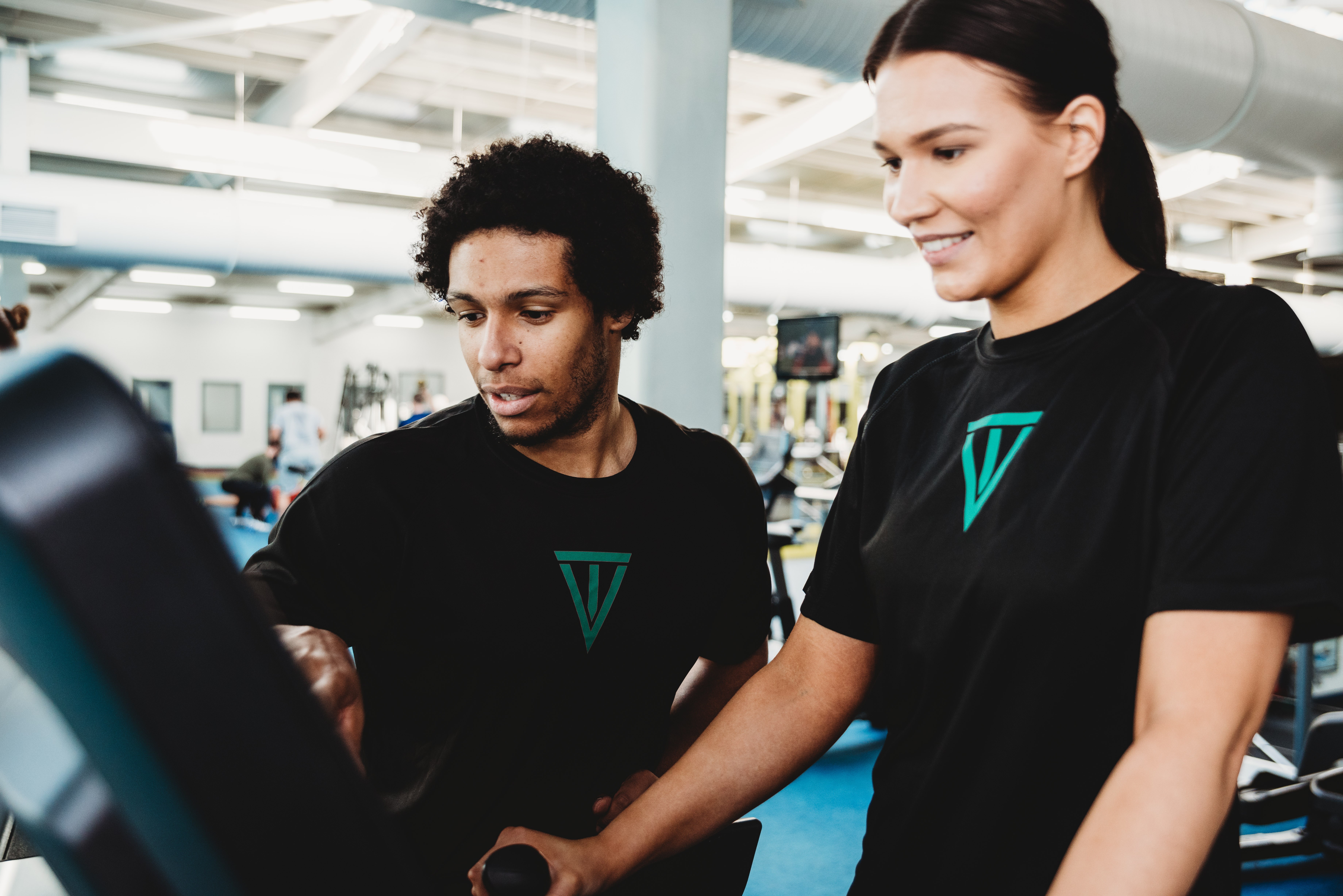
Course extras
This qualification is a shorter programme and is often completed by a range of learners. This includes those looking to up-skill and add competence to their current role whether that be a yoga instructor, PE teacher or general sports coach to name a few examples.
But predominantly this qualification is taken by those who are starting their first steps into a career in fitness, most notably as a Personal Trainer. Therefore the majority of course extras that organisations provide are based around developing their learners future plans with Level 3 content.
This may include guest speakers who are PTs or simply including some elements of the L3 PT course as a taster.
Often the most effective way of providing course extras is by providing more time on the gym floor. This qualification can be completed with as little as 2 face-to-face training days, but this will lack any development of how it really feels when on the gym floor as a Gym Instructor.
Interested in becoming a qualified Gym Instructor?
Find out more about our Gym Instructor course here.

